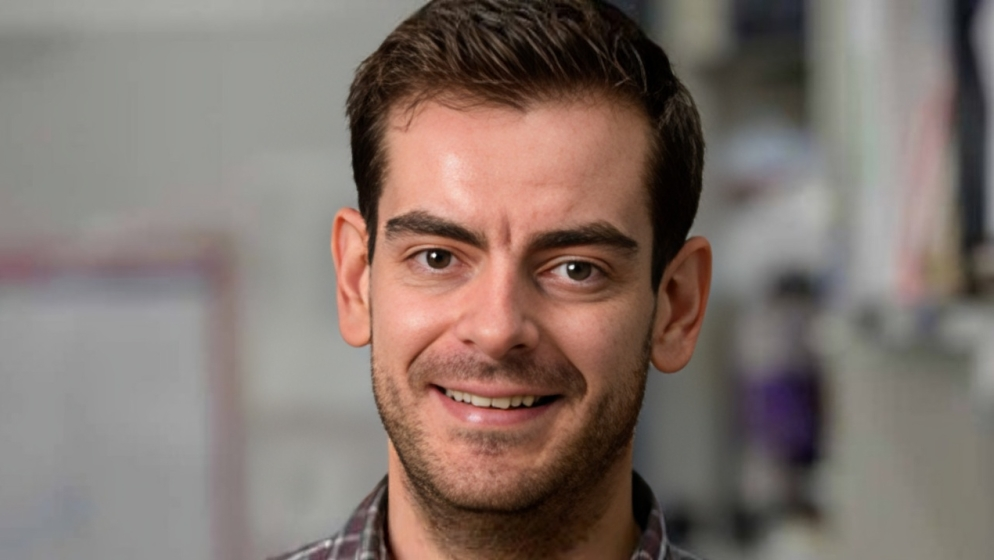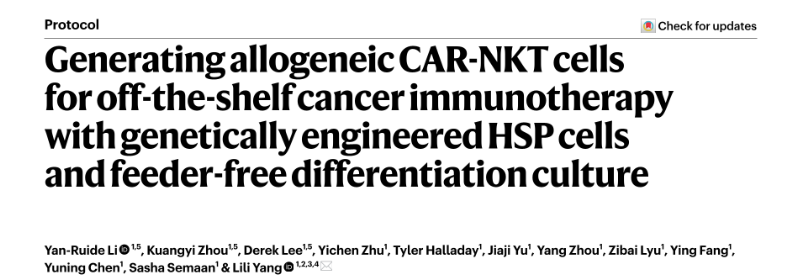
Francisco Conesa Buendía: Off-the-Shelf Cancer Immunotherapy – A Deep Dive into AlloCAR-NKT Cells
Francisco Conesa Buendía, Assistant of Cell and Gene Therapies Manufacturing at Memorial Sloan Kettering Cancer Center, shared a post on LinkedIn about a recent paper by Yan-Ruide Li et al. published in Nature Protocols:
“Off-the-Shelf Cancer Immunotherapy: A Deep Dive into AlloCAR-NKT Cells.
A groundbreaking protocol by Yan-Ruide Li et al., featured in Nature Protocols, introduces a scalable, efficient, and highly potent approach to cancer immunotherapy. This feeder-free method transforms genetically engineered hematopoietic stem and progenitor (HSP) cells into allogeneic CAR-NKT cells, offering a new off-the-shelf therapy solution.
What Makes This Protocol Innovative?
Novel Approach:
- Uses human cord blood-derived CD34+ HSP cells, transduced with a lentiviral vector encoding CARs and invariant NKT (iNKT) TCR genes.
- Overcomes limitations of autologous CAR-T therapies (cost, complexity, and patient dependency).
5-Stage Process (6 weeks total):
- Stage 0: HSP Cell Engineering – Lentiviral transduction for genetic modifications.
- Stage 1: HSP Expansion – Culturing for robust cell growth.
- Stage 2: NKT Differentiation – Conversion into NKT precursors.
- Stage 3: Deep Differentiation – Maturation into CAR-NKT cells.
- Stage 4: NKT Expansion – Scalable production with various expansion methods.
Efficiency Redefined:
- Produces ~10 billion CAR-NKT cells from just 10,000 HSP cells.
- A single donor can yield ~1,000–10,000 doses, making this approach scalable.
Diverse Applications:
- Targets blood cancers (CD19, BCMA) and solid tumors (GD2, GPC3, EGFRvIII).
- Enhances efficacy with IL-15 integration, improving persistence and antitumor effects.
Advanced Tumor Targeting:
CAR-NKT cells leverage triple-targeting mechanisms:
- CAR-mediated: Precise tumor antigen recognition.
- iNKT TCR-dependent: CD1d-restricted tumor killing.
- Natural Killer Receptor (NKR)-mediated: Innate immune response enhancement.
Modifies the tumor microenvironment, selectively eliminating TAMs and MDSCs.
Preclinical Insights
- Safety: Demonstrates minimal risk of graft-versus-host disease (GvHD) and low cytokine release syndrome (CRS).
- Versatility: Compatible with CRISPR-based gene editing to optimize HLA compatibility and reduce rejection risks.
- Applications Beyond Oncology: Potential in autoimmune disorders, viral infections, and GvHD mitigation.
The Big Picture
Autologous CAR-T therapies face significant hurdles:
- Cost: High due to individualized manufacturing.
- Time: Long production cycles hinder accessibility for critically ill patients.
- Patient Constraints: Limited by T-cell functionality in heavily treated individuals.
This protocol offers a universal and scalable solution, paving the way for a paradigm shift in cell-based immunotherapy.”
Authors: Yan-Ruide Li, Kuangyi Zhou, Derek Lee, Yichen Zhu, Tyler Halladay, Jiaji Yu, Yang Zhou, Zibai Lyu, Ying Fang, Yuning Chen, Sasha Semaan, Lili Yang.

More posts featuring Francisco Conesa Buendía.
-
Challenging the Status Quo in Colorectal Cancer 2024
December 6-8, 2024
-
ESMO 2024 Congress
September 13-17, 2024
-
ASCO Annual Meeting
May 30 - June 4, 2024
-
Yvonne Award 2024
May 31, 2024
-
OncoThon 2024, Online
Feb. 15, 2024
-
Global Summit on War & Cancer 2023, Online
Dec. 14-16, 2023
